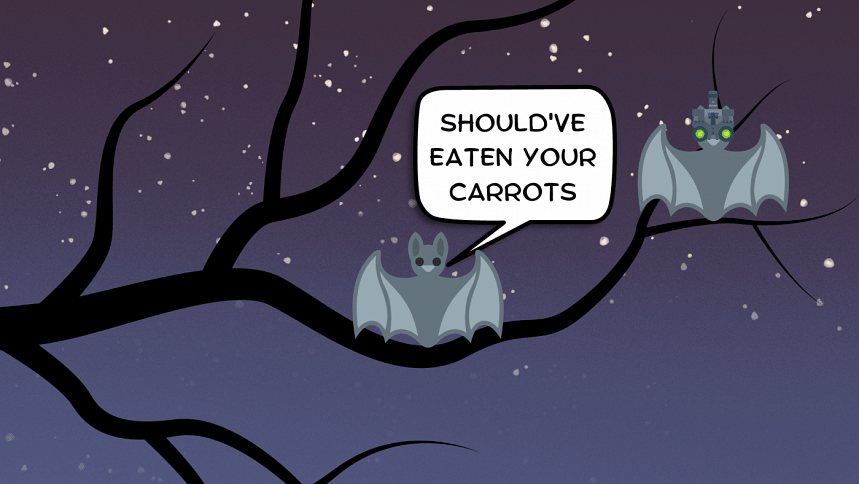The lasting impact of white lies

White lies refer to well-intentioned lies that are mostly innocuous and are used as a way to circumvent certain situations from becoming complicated or socially awkward. These usually salvage situations when the unrelenting truth does more harm than good.
But how far is too far before a fib has a lasting effect on the person lied to?
Did you know, swallowing gum makes it stay in your system for seven years. Well, not really. That's a lie, a peculiar one at that.
As a child, my parents used to promise me immediate super strength to make me eat spinach or convince me of being "able to see in the dark" if I eat carrots. They were, in fact, lying. But if they hadn't, they probably would have had to force me into eating vegetables which would've been counterintuitive to wanting their child to be healthy. These lies are categorically known as "white lies" because they ultimately lead to good things and are iterations of the truth.
Telling inconsequential lies to children is something adults frequently do to simplify uncomfortable answers, deal with tantrums, coerce good behaviour or side-track premature conversations that children lack the emotional tenacity to comprehend. Serious subjects take a backseat or are mostly sugar-coated.
Rather than lying to children about substantial topics, it might be better to provide them with a more toned-down context. For instance, it'd be more propitious to be frank about the unfortunate passing of a pet excluding harsh details rather than telling a child that their pet "ran away" or "the goldfish changed colours". Otherwise, white lies will beget more lies.
White lies begin to backfire when children become self-aware and learn to detect lies. They might become distrustful and question parental credibility. Some might also be misguided to believe that telling circumstantial fibs is always justified because adults are doing the same while preaching the contrary.
A parallel case is when my relative convinced their daughter that her foreign-manufactured toy was better than her sister's "Made in Bangladesh" toy to stop them from quarrelling over whose was better. To them, it might merely be an impulsive lie to handle their child's outbursts. However, this nurtures problematic mentality.
When using fibs to counter difficult moments, it's necessary to be wary of blurring the fine line between "creating a safe space" and "careless sheltering".
White lies are essential in a social setting where honesty might equate to rudeness. Telling an acquaintance, you like their attire even if you don't, is prosocial. Nobody's feelings are hurt and relationships aren't strained. White lies help avoid forced interactions all together.
For example, lying about "just running late" or "feeling fine" when you're really not because telling the truth might mean delving into personal reasons. Healthcare workers are morally permitted to tell "therapeutic fibs" to a patient's family if it protects the interests of the patient.
White lies get things done and bring in positive results. Altruistic lies can even be encouraged. But it's necessary to think about their downstream implications. White lies at the cost of psychological and physical well-being is ignoble. White lying due to misplaced empathy can be detrimental in the long run.
Nuzha is terrible at lying and has a bad poker face. Send her validations at [email protected]

 For all latest news, follow The Daily Star's Google News channel.
For all latest news, follow The Daily Star's Google News channel. 








Comments